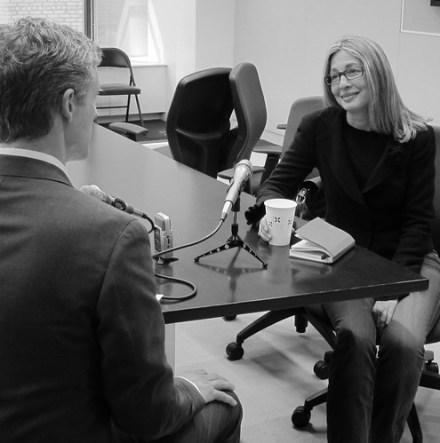Virtual Memories – season 3 episode 12 – Highest Learning
Podcast: Play in new window | Download
Subscribe: Spotify | TuneIn | RSS | More
Your humble(ish) host just made his annual Piraeus pilgrimage to St. John’s College in Annapolis, MD, this time to participate in a four-day seminar about Moby Dick . . . and score a great interview! I managed to get legendary tutor Eva Brann (above) to take a break from her crazy schedule and sit down for a 45-minute conversation about the college’s Great Books program and how she’s seen it change (and stay the same) in her FIFTY-SEVEN YEARS at the school. We also talk about the value of a liberal arts education, the one novel she’d add to the St. John’s curriculum, the need professors have to profess (and why St. John’s has tutors instead of professors), her swoon for Odysseus, her desert island book, her one criterion for a great novel, where she sees the school going in the next fifty-seven years, the Dostoevsky-or-Tolstoy debate, and more, including a boatload of questions I solicited from alumni! It’s a fascinating conversation with one of the most learned people in the world.
And then Ian Kelley, a St. John’s student from 1993, talks about his experience at the college, what brought him there, what he learned about himself and the Great Books, and how his Annapolis experience influenced his decision to join the U.S. Navy. Ian’s a longtime pal and is the first guest to appear in the non-famous Virtual Memories Library (pictured, with dog, who occasionally sighs and grunts during the podcast).
Podcast: Play in new window | Download
Subscribe: Spotify | TuneIn | RSS | More
Enjoy the conversations! Then check out the archives for more great talk!
Related episodes:
Follow The Virtual Memories Show on iTunes, Twitter, Facebook, Tumblr, and RSS!
About our Guests
Eva Brann has been a tutor at St. John’s College in Annapolis, MD since 1957 and served as dean there from 1990 to 1997. Ms. Brann is the author of Homeric Moments: Clues to Delight in Reading the Odyssey and the Iliad, The Music of the Republic: Essays on Socrates’ Conversations and Plato’s Writings
, Open Secrets / Inward Prospects: Reflections on World and Soul
, Feeling Our Feelings: What Philosophers Think and People Know
, Homage to Americans: Mile-High Meditations, Close Readings, and Time-Spanning Speculations
, and The Logos of Heraclitus, all of which are available from Paul Dry Books.
Ian Kelley is a proud 1997 graduate of St. John’s College in Annapolis, MD, and an avid motorcyclist, traveler and reader. He trusts Gil Roth to keep him smart and honest. Ian and his wife, Jessica, live in Fallon, NV.
We previously interviewed St. John’s College tutors David Townsend and Tom May, so you should check those out! For more information about St. John’s College and the Great Books program, visit its site.
Credits: This episode’s music is Wonderful World by Sam Cooke. The conversation was recorded at the home of Eva Brann on a pair of Blue enCORE 200 microphones, feeding into a Zoom H4n recorder
. The conversation with Ian Kelley was recorded at my home on a pair AT2020
mics feeding into the Zoom H4n. I recorded the intro and outro on a Blue enCORE 200 into the Zoom H4n. All editing and processing was done in Garage Band. Photo of Eva Brann by me, photo of Ian Kelley and me by Amy Roth.





 Lori Carson
Lori Carson




